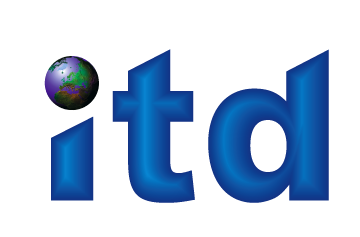[left_side]
Workshop Overview
Trainees need to develop knowledge of the law in tandem with how best to communicate this knowledge.
This Professional Business Communication workshop gives trainee lawyers the opportunity to review and develop their communication skills. If it is accepted that communication is partly about the words, partly about how we say the words, and partly about body language, this session can help with all three.
The session looks at communication skills as a whole to identify potential areas for development. It then drills down into tips and ideas for what words to choose and common pitfalls to avoid. It looks at the impact of changing how we deliver the words. And it looks at the power of body language. The ITD Work Style Model gives trainees a framework for how to more effectively approach senior lawyers, clients and colleagues.
The result is to give trainees a foundation of communication skills to take forward.
We look at the participants real work situations and explore how to improve communication skills within the context of these scenarios. How to interrupt a colleague who never stops talking? How to get more from a lawyer who never has time for you. How to explain complex legal matter to someone who has no legal knowledge.
[/left_side][right_side]
[/right_side]
[dottedline][/dottedline]
[left_side]
Pre workshop activity
- Meeting to discuss the participant’s needs and those of the firm
- Draft workshop outline tailored to your needs
- Agreement of agenda
- Participants complete a short questionnaire and read the ITD Work Style Model in preparation for the workshop.
Participants
- Trainees or junior lawyers
Duration
- Half a day.
Typical Agenda
- Introductions & objectives
- Challenges in communicating in a law firm
- ITD Work Style Model
- Improving communication with senior lawyers
- Assertive behaviour for trainees
- How to say you have enough work for that day!
- Improving listening
- Developing empathy
- Questioning skills
- Clarity in communicating
- Developing better body language
- Clear purpose or objective
- Involving the other person / people
- Improving eye contact
- The power of Mirroring
- Personal actions
Post workshop activity
- Participants leave with individual actions
- Email follow up of personal action plans
- Suggested conversation with their line manager on their actions
- Optional WebEx conference call follow up on these actions
- Optional 121 coaching
- ITD blog with further tips and suggestions
[/left_side][right_side]
Client feedback
- “The session is always very popular and gets great feedback.
Participant comments
- “Very interesting especially the models.”
- “I need to work on my non verbal communication, which I had not fully considered before.”
- “I have experienced meetings where the content of the words has been fine, but where the client has drifted away because the delivery was not matching their style; so this stuff is really important”
Call or email ITD to explore how we can help your junior lawyers & trainees can improve their communication at work
[/right_side]
[dottedline][/dottedline]
[left_side]
Professional Business Communication – Case Study
This international law firm holds regular workshops for trainees and junior lawyers to develop their skills, share experiences and network.
Background
Trainees and junior lawyers tend to be very hungry for knowledge about the law. Communication skills training is about how we transfer our knowledge and give confidence to our colleagues and our clients. Trainee lawyers tend to be very bright, very quick and articulate. Training in this area is about fine tuning skills.
Need
The need with trainee lawyers is often about developing confidence in communicating assertively with senior lawyers. Senior lawyers are often under great pressure with tight deadlines and as a result their communication can suffer. It is for the trainee to adapt to this whilst at the same time getting sufficient detail in briefings to be bale to carry out tasks efficiently.
Activity
We developed a half day to full day workshop which covers the key areas of communication and focusses on the trainees personal communication challenges. It is a workshop with plenty of discussion and debate, resulting in each trainee developing their own ideas and actions to implement immediately. The session addresses questions including;
- How do we interrupt a busy senior lawyer?
- What do I do if my supervisor does not reply to my email?
- How do I ask a question without looking stupid?
- How do I know what I ought to know, before asking a question?
[/left_side][right_side]
Outcomes
The main outcomes of this session are:
- The participants leave with clear and specific actions.
- Their questions are addressed.
- Each person has a set of actions and ideas to take forward.
What the participants said
- “Very good trainer who knows the subject and related it to us very well.”
- “The work style model is very thought provoking.”
[/right_side]

